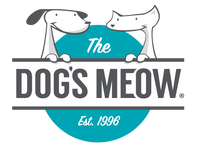What About Hairballs?
Hairballs
Isn't it nice that your cat can be its own personal groomer? Yes, until you, the pet parent, are left picking up an icky, slimy hairball. This article will address causes and hairball remedies that may help!
What are hairballs?
Cat hairballs are the regurgitation of body hair after your cat grooms itself. Usually the hair that the cat licks off just passes through their system, but sometimes the hair collects into a "ball" in the digestive tract and doesn't move through. This collection of hair is then pushed back into the cat's stomach and regurgitated, and this is the hairball. Hairballs are more common in older cats and long haired cats and are not a cause for alarm if they happen infrequently. (Note that this does NOT include regurgitating foreign objects or the cat's food-this may nean something else is going on and your cat may need veterinary/medical care. This should be addressed as a separate issue.)
What causes hairballs in cats?
Cats spend about 30%-50% of their awake time grooming themselves. During this process of grooming, hair is consumed by the cat due to its tongue having backward-facing barbs (this is why cats seem to have rough tongues). These barbs will collect loose fur and that is then swallowed. Cats, like all mammals, are not able to digest keratin which hair is made of. This means that when your cat grooms itself, the hair should be passed in its stool without any issues. If your cat has a healthy digestive system and healthy skin and coat, then they should rarely produce hairballs. If your cat is having a large number of hairballs, then there is likely some form of stomach or gastrointestinal upset. Anxiety can also lead to excessive grooming, which increases the amount of hair ingested by your feline friend.
Are hairballs dangerous?
If your cat is having frequent hairballs, then this may be cause for concern. A hairball that get stuck in the digestive system can cause a blockage that can be life-threatening if it does not resolve. In extreme cases, surgical intervention may be required to remove the hairball to unblock the digestive tract. It's important to pay attention to your cat's grooming habits and seek professional help if your cat has any of the following symptoms:
-
Lethargy
-
Constant retching with no hairball (or vomit)
-
Not eating
-
Diarrhea
-
Constipation
How to prevent hairballs for your cat
Frequent brushing can help to reduce excess fur as well as the amount of hair ingested while self-grooming.
Your cat's diet is critical! If your cat is currently on a kibble-based diet, switching to a higher quality kibble, such as Nulo Freestyle Hairball Management Turkey and Cod Recipe, may help with the shedding. If possible, switching to a full wet diet, canned or raw, would be ideal. If that isn't an option, you can try switching half of their diet to canned or wet food. This will add moisture to your cat's diet and is more easily digested. Whatever food you decide to feed your cat, we suggest adding digestive enzymes, such as Optagest Digestive Aid. This supplement helps the cat digest their food, absorbing nutrients more fully to the organs and skin. Cats need to hydrate but they do not have a natural urge to drink water so adding moisture in their diet is key. (This also helps their kidneys function better)
Adding fiber may also help your cat pass hairballs.
Products to reduce hairballs
Nulo Functional Skin and Coat Treats have salmon and coconut oil to help maintain a shiny and healthy coat. Zinc and biotin supports skin health, while prebiotics and probiotics help support your cat's overall gut health. These treats are also free of corn, wheat, gluten, soy and artificial preservatives, colors or flavoring.
Meow Biotics Hairball Buster is a food additive with probiotics and two billion CFUs to break down hairballs. With ingredients like fish oil, flaxseed, and various forms of probiotics; this formula supports your cat's overall digestive system. This allows your cat to easily handle hairballs while promoting healthy skin and a shiny coat.
Vetriscience Laboratories Hairball Formula cat chew provides omega fatty acids that help keep the skin and coat healthy while also supporting the lining of the GI tract. Keeping the skin and coat healthy will reduce unwanted shedding that can cause hairballs in the first place. The added Psyllium, which is a soluble fiber, promotes healthy movement and function throughout the GI tract. The added biotin assists in healthy, normal shedding, while zinc which aids in collagen production.
This article was put together for informational purposes by our staff. We are not veterinarians and we put this together to help educate others on hairballs to support feline health. We are happy to discuss any hairball problem or healthy food and supplement options so don't hesitate to ask when you come in the store. Please consult with your veterinary professional with any health concerns.
Sources
https://nulo.com/products/freestyle-turkey-cod-hairball-cat
https://www.vetriscience.com/hairball.html
https://www.holisticpetinfo.com/Hairball-by-Vetri-Science.html
https://shop.animalbiome.com/blogs/pet-health/your-cat-has-hairballs-should-you-worry
https://www.rufflesnuffle.co.uk/how-dangerous-are-cat-hairballs/
https://www.fidobiotics.com/products/hairball-buster-hairball-aid
https://catfriendly.com/routine-care-grooming/hairballs/
https://www.mentalfloss.com/article/50303/7-facts-about-hairballs






